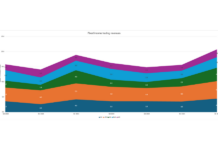
With a reported accuracy of 91%, Katana uses machine learning algorithms and the latest big data technologies to analyse live and up to ten years of historical data from IHS Markit to detect reverting dislocations and reveal relative value insights for up to 200 million bond pairs over six different universes.
The independent evaluated bond pricing, reference and liquidity data from IHS Markit enables Katana to separate signals from the noise with a view to delivering unbiased market intelligence, potentially allowing investors to optimise their holdings and secure alpha. Portfolio managers and traders can monitor their holdings or watchlists to identify actionable opportunities and see broader trends in the market faster and more precisely.
As part of its methodology, IHS Markit combines evaluators in four global locations with proprietary algorithms that identify live pricing data in bond markets. For liquidity, IHS Markit measures a live range of market-driven metrics, including bid/offer spreads, quote volumes, unique price points and trade reporting.

Nathan Kirk, executive director, fixed income strategy at IHS Markit said, “Katana is a revolutionary platform for discovering trends and distinct trade ideas across the global bond market. There is a great deal of excitement about Katana’s practical application of advanced machine learning to uncover fixed income trading signals.”
Santiago Braje, founder and CEO of Katana said, “This data partnership will transform what we can deliver to our clients. By integrating the independent pricing and transparency data from IHS Markit, Katana can now provide customised relative value insights and trade ideas for bonds across North America, Europe and APAC as well as Emerging Markets. In doing so we become a significant global player and, I believe, the leading relative value insights tool in the bond market.”
©Markets Media Europe 2025

























